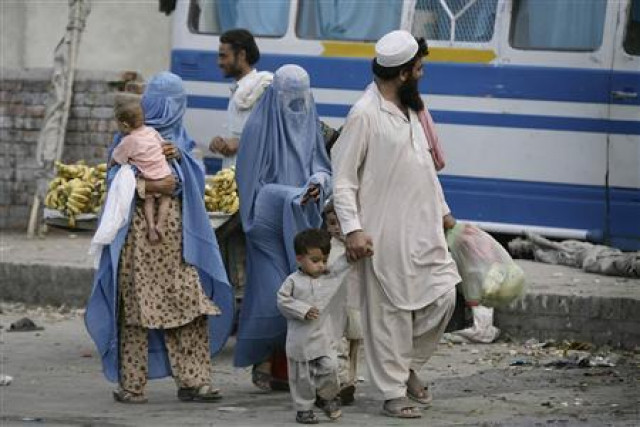The Afghan equation
Pakistan’s problems in Afghanistan are a result of its policy in the latter country.

Pakistan needs to act on this issue with earnest resolution. Pakistan’s problems in Afghanistan are a result of its policy in the latter country. Even today, Afghans who oppose a Taliban return are said to be angered by what they say are ‘games’ played by Islamabad and tensions between the latter and Kabul run high. But we need to move towards thinking of solutions and solving a problem that has gone on for far too long. Many Afghans living in Pakistan today have been born and bred here, resulting in thousands of intermarriages. The time has come to integrate these Afghans.
A clear policy is needed by the end of the year, before the residence permits currently issued to these Afghan nationals expire. And, of course, as far as wider policy goes, Pakistan and all the elements within it need to think about what they are doing, what impact this will have on the future and how it will affect a region that has been used as a playing field of power for decades, whilst major countries across the world have used it to build their own interests.
Published in The Express Tribune, February 27th, 2012.















COMMENTS
Comments are moderated and generally will be posted if they are on-topic and not abusive.
For more information, please see our Comments FAQ